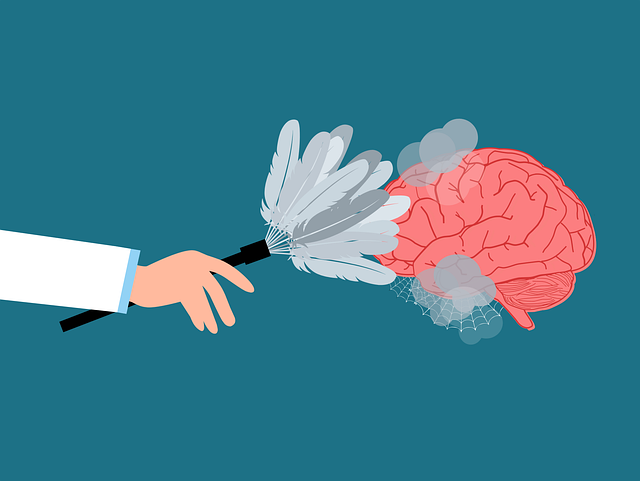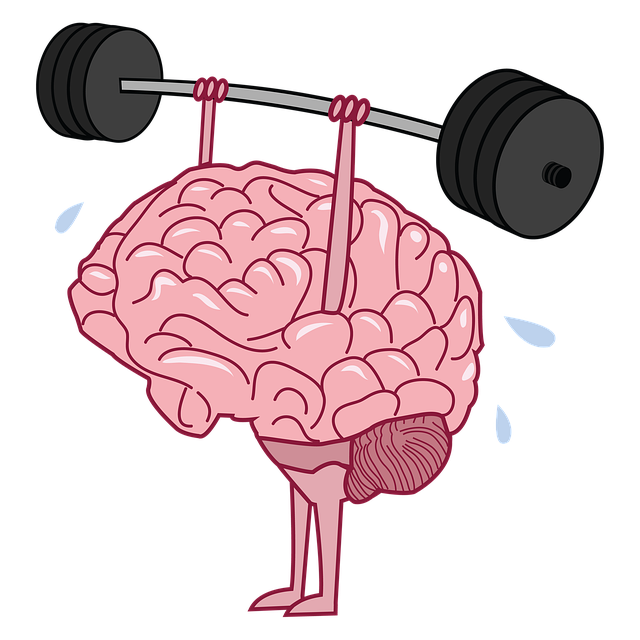Mental wellness journaling is a growing trend among Hebrew-speaking adults seeking therapy. This practice offers a safe space to explore and document thoughts, feelings, and experiences, enhancing self-awareness and fostering empathy. By reflecting on their emotional landscape through tailored prompts, individuals cultivate positive thinking, self-compassion, and resilience. Integrating cultural elements from Hebrew traditions further enhances healing and identity. Setting up a dedicated journaling space at home encourages regular practice as a form of self-expression and stress relief. Combining journaling with mindfulness meditation significantly improves mental wellness for Hebrew-speaking adults in therapy, providing a tangible record of personal growth and emotional exploration.
Mental wellness journaling is a powerful therapy tool that offers Hebrew speaking adults an opportunity to express their emotions, gain clarity, and improve overall well-being. This article explores the benefits of incorporating journaling into daily routines, providing guidance on setting up a safe space and offering creative prompts. By understanding the impact of this practice, individuals can harness its potential for long-lasting positive change.
- Understanding Mental Wellness Journaling: A Personal Therapy Tool
- Benefits of Expressing Yourself Through Journaling for Hebrew Speaking Adults
- Setting Up Your Journal: Creating a Safe and Inviting Space
- Prompt Ideas to Guide Your Writing Journey
- Integrating Journaling into Daily Routine for Long-Lasting Impact
Understanding Mental Wellness Journaling: A Personal Therapy Tool

Mental wellness journaling is a powerful personal therapy tool that has gained significant traction in recent years, particularly as part of modern therapy practices for adults speaking Hebrew. This introspective practice involves documenting thoughts, feelings, and experiences on a regular basis, offering individuals a safe space to explore their mental health and well-being. By committing their innermost struggles and triumphs to paper, journal writers cultivate greater self-awareness, enabling them to better understand the complex interplay of emotions and thought patterns that influence their daily lives.
Beyond its therapeutic benefits, journaling serves as an effective means for implementing empathy building strategies and compassion cultivation practices. Through reflective writing, individuals can gain valuable insights into their own experiences while fostering a deeper connection with themselves and others. This process encourages positive thinking, promotes self-compassion, and cultivates a more nuanced perspective on life’s challenges, ultimately contributing to improved mental wellness and resilience.
Benefits of Expressing Yourself Through Journaling for Hebrew Speaking Adults

Expressing oneself through journaling can be a profoundly beneficial therapy for Hebrew-speaking adults seeking to enhance their mental wellness. By putting thoughts and feelings into words, individuals can gain valuable insights into their emotions, experiences, and patterns of thinking, fostering self-awareness and personal growth. This practice acts as a form of emotional release, allowing them to process complex feelings and memories in a safe and private manner. Moreover, journaling encourages creativity and provides an outlet for creative expression, which can be particularly therapeutic for those who find traditional talk therapy challenging.
For Hebrew-speaking adults, journaling offers a unique opportunity to connect with their cultural heritage while tending to their mental health. It enables them to explore and confront personal struggles through the lens of their experiences and beliefs, often incorporating meaningful metaphors and narratives from Jewish traditions. Integrating cultural elements into therapeutic practices like journaling can lead to more profound healing and a stronger sense of identity. This approach aligns well with the principles of Mental Health Policy Analysis and Advocacy, Compassion Cultivation Practices, and effective Communication Strategies that cater to diverse populations.
Setting Up Your Journal: Creating a Safe and Inviting Space

Setting up your journal should be a calming and enjoyable process, creating a safe haven where you can express yourself freely. Designate a quiet, private space in your home as your journaling corner. This could be a comfortable chair by a window or a cozy nook in your bedroom. Ensure the area is clutter-free and well-lit to foster a sense of calm. Personalize your journal space with items that inspire you—a favorite plant, a meaningful quote, or even photographs of loved ones can make your journal feel more inviting.
Think about making it visually appealing too. Use colorful stationery, add sticky notes or washi tape to decorate the pages, and consider binding your journal with a cover that reflects your personality. Creating an esthetically pleasing space can enhance your overall experience, making it easier to return to your journal regularly as a form of self-care—a crucial aspect of burnout prevention strategies for healthcare providers and adults seeking therapy in Hebrew speaking communities. Effective communication strategies and social skills training can also benefit from this practice.
Prompt Ideas to Guide Your Writing Journey

Unleash your creativity and embark on a journey of self-discovery through mental wellness journaling. This practice offers a unique space to explore your thoughts, emotions, and experiences in a safe and private manner. To kickstart this therapeutic process, consider these prompt ideas tailored for adults speaking Hebrew:
Reflect on your day by listing three things that brought you joy and three challenges you faced. This simple exercise encourages mindfulness and helps identify sources of happiness or areas needing improvement. For instance, writing about a beautiful sunset or a successful work project can enhance your sense of accomplishment, while acknowledging frustrating traffic or personal conflicts might offer insights for developing coping skills to navigate such situations better. By regularly documenting both positive and negative experiences, you can gain valuable perspectives on your emotional landscape. Moreover, these prompts can facilitate conversations with therapists specializing in therapy for adults speaking Hebrew, enabling deeper exploration of themes and facilitating depression prevention strategies.
Integrating Journaling into Daily Routine for Long-Lasting Impact

Integrating journaling into your daily routine can be a powerful tool for enhancing mental wellness, especially when combined with other therapeutic practices like mindfulness meditation. For Hebrew-speaking adults seeking therapy, this simple yet profound activity offers a dedicated space to process emotions, reflect on personal growth, and set intentions for the future. By dedicating just a few minutes each day to writing, one can cultivate a deeper understanding of their thoughts and feelings, fostering self-awareness and resilience.
Consistently documenting experiences and reflections creates a valuable mental wellness podcast series production—a tangible record of your journey towards healing and personal development. Moreover, regular journaling can serve as an entry point into exploring various mental wellness coaching programs designed to cater to specific needs. Through this practice, individuals can gain clarity, identify patterns, and set achievable goals, ultimately leading to lasting improvements in their overall well-being.
Mental wellness journaling offers Hebrew-speaking adults a powerful, accessible therapy tool for enhancing their emotional well-being. By integrating this practice into their daily routines, individuals can unlock the numerous benefits of self-expression, gain valuable insights, and cultivate a deeper understanding of themselves. With the right prompts and a safe, inviting space, anyone can embark on a transformative journey of self-discovery and mental wellness.








